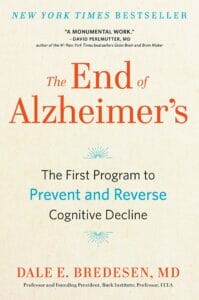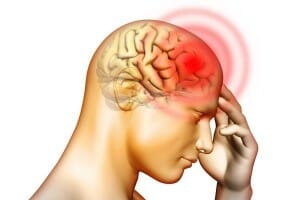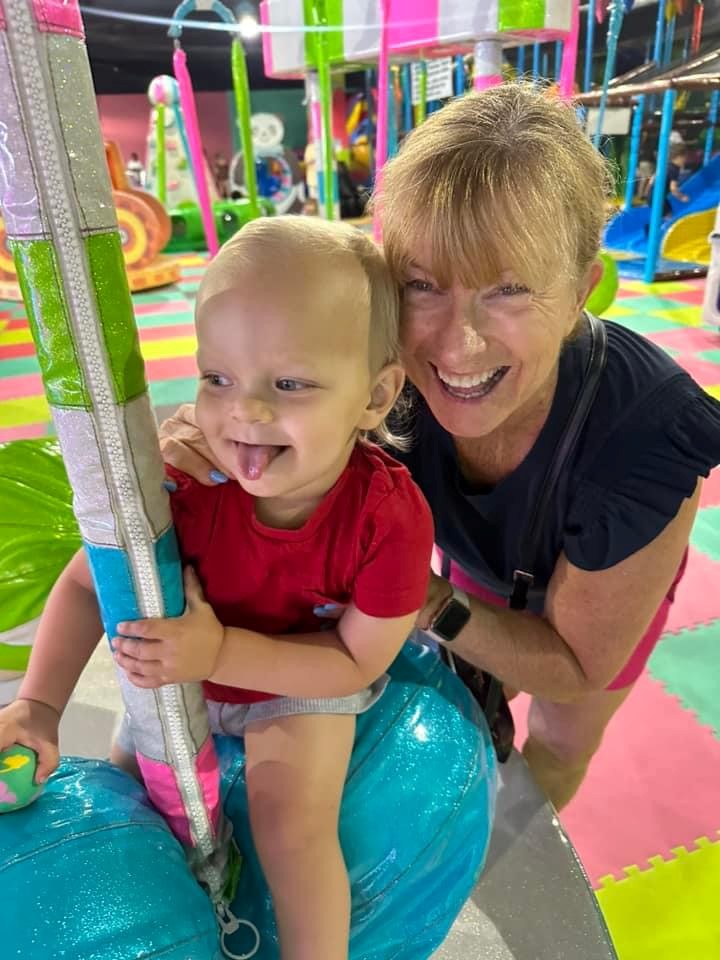Did you know there are key biomarkers for Alzheimer’s disease?
Whether a person is at risk of developing the disease versus actively has symptoms, is often reflective of the number of their biomarkers. As few as three to five suboptimal lab values may be observed in an at-risk pre-symptomatic person versus up to 25 in a symptomatic person.

This information I learned from a great book called The End of Alzheimer’s: The First Program to Prevent and Reverse Cognitive Decline by Dale E. Bredesen, M.D. He is a professor of neurology at the Easton Laboratories for Neurodegenerative Disease Research at the David Geffen School of Medicine at the University of California, Los Angeles (UCLA).
His laboratory focuses on identifying and understanding basic mechanisms underlying Alzheimer’s disease and other neurodegenerative conditions. He has collaborated on the publication of more than 220 academic research papers.
Dr. Bredesen proposes a pretty radical idea. He says that Alzheimer’s disease as we know it could be largely ended with the current generation. The key to doing this? By treating the prevention of Alzheimer’s in much the same way we treat colon cancer — with screening to detect the first signs of trouble.
A key message from Dr Bredesen is that not only should we potentially get tested for the key biomarkers for Alzheimer’s disease. Importantly, for some of these tests, our goal should be to keep our ranges even healthier than what the laboratory references may indicate as “normal.”
Key Biomarkers for Alzheimer’s disease
Here are some key biomarkers that Dr. Bredesen recommends and tells us the ranges he thinks are more optimal than the standard “within normal limits” ranges:
hsCRP (less than 1.0 mg/L)
Fasting insulin (less than 7 mIU/L)
Hemoglobin A1c (less than 5.5%)
Homocysteine (less than 7 μmol/L)
Dr Bresden believes “Alzheimer’s disease should essentially decrease to a very low level with the current generation. If everybody gets checked, we recommend that everybody 45 or over get a cognoscopy.”
CLICK HERE for another great blog article related to brain health!




























